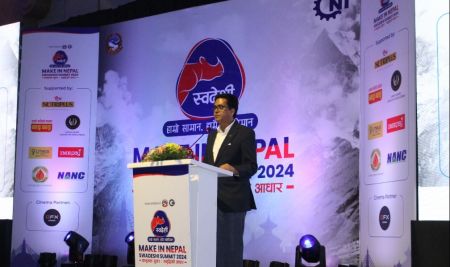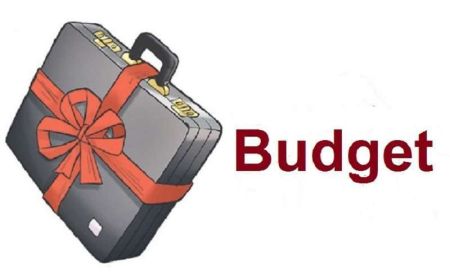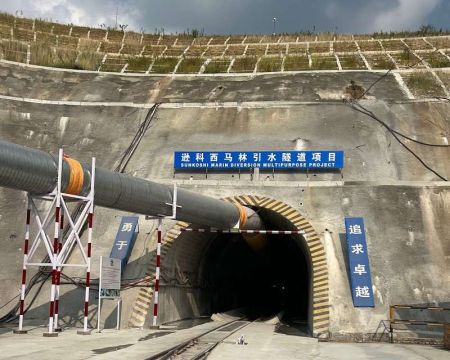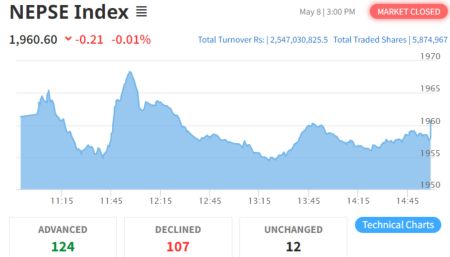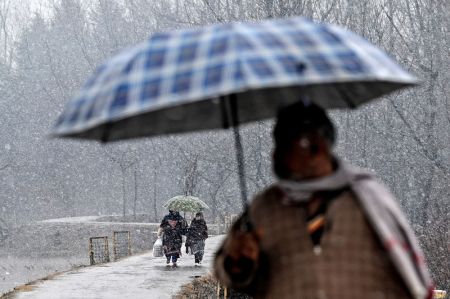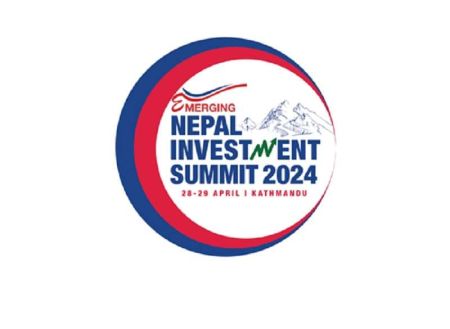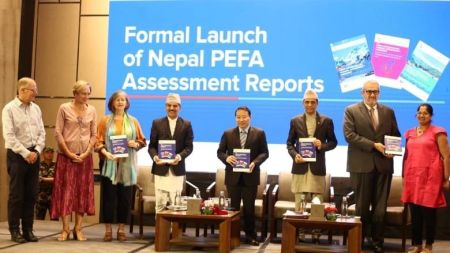What are IPPAN's views on the prospects of cross-border electricity trade in this region?
IPPAN sees cross-border electricity trade as a promising avenue for advancing the energy sector in the region. While the NEA has been actively involved in such trade, we believe there is significant untapped potential that could be unlocked by involving the private sector. Currently, the NEA has not fully harnessed its capacity for electricity trading. When we look at India, we see the private sector actively involved in the market which indicates a promising avenue for expansion. To realise this potential, it is imperative to facilitate private sector participation in cross-border power trade. We are hopeful that the upcoming Electricity Bill will pave the way for greater private sector involvement in this domain.
What role can the private sector play in cross-border electricity trade?
The government has set an ambitious target of selling 10,000 MW of hydroelectricity to India. The ambitious target can be met by working in collaboration with the private sector. Opening up this sector to private entities offers two key advantages: not only does it enable Nepal's electricity to be exportable, but it also empowers private enterprises to actively participate in this trade, mirroring the current efforts of the NEA. This expansion is poised to accelerate the growth of the sector. Moreover, when we draw parallels with the telecommunications industry, we see the transformative impact that private sector involvement can have. The entry of Ncell, for instance, revolutionised the telecommunications sector, highlighting the positive influence of private enterprises. By fostering collaboration with major players in the cross-border trade of electricity, we can amplify the benefits of this market. This underscores the necessity of expanding participation beyond a single entity like the NEA, ensuring that the private sector assumes a pivotal role. This, in turn, will lead to increased energy output.
What are the challenges in power trade?
One significant hurdle that we are facing is the lack of control over crucial infrastructures like transmission lines which are under the jurisdiction of the NEA. We have long been advocating for granting licences to the private sector for trade and facilitating cross-border transactions. Establishing a long-term agreement for this is imperative. Additionally, there's uncertainty over whether banks will extend loans for our Power Purchase Agreements (PPA) involving trade with India. While we anticipate these challenges will gradually diminish with the maturation of the private sector in this domain, it's essential to acknowledge the obstacles at this initial stage.
What are IPPAN’s suggestions to the government to increase cross-border power trade?
As we have consistently been emphasising, the foremost priority is the expansion of transmission lines. This is because substantial progress in cross-border power trade remains unattainable without enhancing this critical infrastructure. Furthermore, there are pertinent issues on the Indian side, notably the classification of our electricity as green energy. While electricity generated there receives this designation, the same doesn't apply to energy generated here resulting in a potential exemption from certain taxes. It is imperative that the government assures us of continuous advancements in this sector to foster private sector involvement. Encouragingly, there is a discernible shift towards a more positive stance in this regard. Simultaneously, we must also give due emphasis to bolstering domestic trade. Strategically, focusing on hydroelectricity production in the eastern regions for distribution towards the west holds a great promise. We anticipate that many of these concerns will be addressed in the Electricity Bill.
One of the demands of IPPAN has been to allow the private sector to engage in electricity trade. How practical is this demand?
If we look at India, we can say as many as 50 entities involved in the electricity trade. Presently, only the NEA, a state-owned company, is engaged in power trade as stipulated in Section 20 of the Nepal Electricity Act, 1984. Cross-border power trade conducted through government-owned entities entails a protracted process, involving various steps like administrative appointments. However, the private sector can shorten the administrative process significantly.
In our case, we possess a robust foothold and extensive connections. State-owned bodies are primarily affiliated with other governmental entities, whereas we foster collaboration and partnership with private enterprises. In India, numerous private institutions such as the Ambani Group, Birla Group, and Tata Group, have access to transmission lines and are allowed to engage in power trade.
Hence, it is imperative to involve the private sector in this sector while also ensuring that the government fulfils its responsibilities—a demand we have consistently advocated for. There have been reports of private companies expressing interest in direct electricity trade or Power Purchase Agreements (PPA) with India. It is crucial that these ventures adhere to government guidelines. A handful of major companies have already been registered, and their entry into the arena promises transformative changes, ultimately leading to an improved market landscape in this sector.
We export electricity to India at a cheaper rate compared to the import rate. Why is it so?
Nepal consistently experiences surplus electricity during the months of June to September, coinciding with India's high demand for power. This surplus allows us to offer electricity to India at more affordable rates compared to their current market price, which is nearly twice as high. We need to supplement power supply in the grid during the dry season when our own supply is limited to about 30% of our capacity. This heightened demand and limited supply naturally lead to increased costs. Furthermore, India primarily relies on coal-generated electricity which makes its energy cost comparatively higher.
This is why we are advocating for self-sufficiency within the next decade, aiming to generate and utilise 10,000 MW of electricity in Nepal. We have consistently urged the government to formulate policies that would facilitate private sector involvement in hydroelectric production. During the dry season, the price in India surges to as high as Rs 25 per unit. This underscores the urgency for us to be permitted to take charge of our energy production. Encouragingly, there's a positive disposition from the government in this regard. In fact, plans are afoot to bring a policy that aims to produce between 30,000 to 35,000 MW of electricity by 2035. This signifies a significant stride towards energy independence and sustainability.
Any final remarks?
Energy serves as the bedrock of development. It is, therefore, crucial to capitalise on the resources at hand. In addition to conventional sources, we also have the potential for solar energy. India has expressed interest in purchasing electricity from us, and Bangladesh too is keen to import power from Nepal. There is even talk of potential exports to China. However, our current energy reserves fall short of meeting these demands.
When we consider selling, it is important to emphasise that we only export the surplus energy. This will put pressure on the government to support the expansion of energy production, both for internal use and for trade. The private sector stands poised and ready to contribute to this endeavour.








